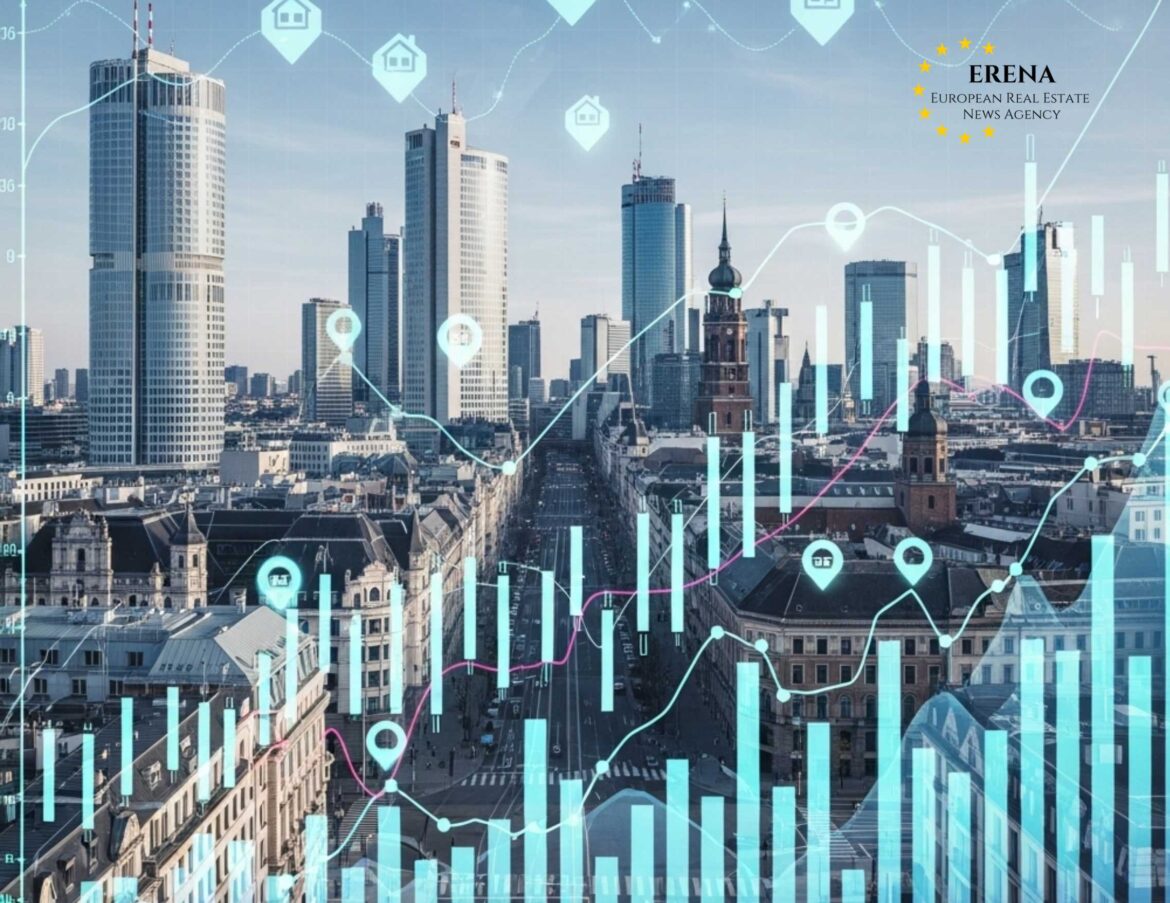May 2025 marked a significant period of activity in the European real estate market. Amid easing inflation, stabilized interest rates, and a growing emphasis on sustainable assets, investors continued to diversify portfolios across sectors such as logistics, residential, and green-certified properties.
General Market Overview: Resilience and Cautious Optimism
Despite ongoing geopolitical tensions and uneven economic performance across regions, the European market showed resilience. According to leading real estate consultancies, the total volume of investment deals in Europe for May 2025 reached approximately €27.3 billion, a 6.5% increase compared to May 2024.
Contributing factors include:
- Declining inflation within the eurozone (approximately 2.3%)
- More favorable borrowing conditions for mortgages and commercial loans
- Increased interest in ESG-compliant real estate assets
Top Investment Destinations
The countries with the highest real estate investment volumes in May 2025 were:
- Germany – approx. €6.2 billion
- France – €4.8 billion
- Netherlands – €3.1 billion
- Spain – €2.6 billion
- Poland – €1.9 billion
Germany remains a leader thanks to its strong logistics and office markets, while France continues to draw investor interest in residential and hospitality sectors, especially ahead of the 2026 Olympic Games.
Logistics and Industrial Real Estate
Logistics continues to be the top-performing segment across Europe. Growing demand from e-commerce, pharmaceuticals, and retail has driven both new developments and the acquisition of modern logistics hubs.
Key indicators:
- Prime yields in Eastern Europe range between 4.6% and 5.1%
- In Germany, yields dropped to 4.2%
- New developments are concentrated in the Ruhr region, Łódź, and around Paris
ESG-certified assets (BREEAM, LEED, DGNB) are highly sought-after, with major players like Prologis, GLP, VGP, and EQT leading the charge.
Residential Sector: Stabilization and Build-to-Rent Growth
The residential market showed signs of stabilization in May 2025 after prolonged price increases. Average new-build prices:
- Berlin: €6,400/m²
- Paris: €11,200/m²
- Barcelona: €5,100/m²
- Warsaw: €3,300/m²
- Lisbon: €4,600/m²
Investors are increasingly turning to Build-to-Rent (BTR) developments, particularly in metropolitan areas with high rental demand. Institutional investors are financing large-scale rental housing projects with long-term income strategies.
Office Real Estate: Flexibility and Sustainability
The office segment is undergoing transformation. Investors are shifting focus to flexible, ESG-compliant office spaces that meet modern tenant expectations.
New projects are concentrated in:
- Frankfurt
- Amsterdam
- Munich
- Milan
- Vilnius
Average prime office rents in these cities range between €28 and €46 per m²/month.
Additionally, there is a growing trend toward converting outdated office spaces into residential units, especially in cities like London, Paris, and Rome, where housing shortages persist and office vacancies rise.
ESG and Green Investments
Sustainability is a dominant theme. Nearly 70% of all new investments in May included ESG commitments such as:
- On-site renewable energy generation
- Solar panels and heat pumps
- Waste-reduction construction practices
- Smart energy management systems
In May, several major firms launched new ESG-focused real estate funds, including PIMCO, Blackstone’s Green Property Fund, and PropertyGuru’s Green Real Estate 2025.
Hospitality Sector: Recovery and Luxury Focus
The hospitality industry continued its post-COVID recovery, driven by a resurgence in tourism across Southern Europe. Key markets include:
- Spanish coastline (Málaga, Alicante, Palma)
- French Riviera
- Greek islands
- Northern Italy (Lake Como, Turin)
Yields in mid-tier hotel assets climbed to 6.2%. Investors are also increasingly interested in boutique and eco-luxury hotels with sustainable business models.
Alternative Assets on the Rise
Niche asset classes gained momentum in May:
- Data centers, particularly in the Netherlands and Nordic countries
- Student housing, with strong demand in Oxford, Gdańsk, and Leiden
- Healthcare infrastructure, including clinics, pharmacies, and senior housing
These sectors are attracting institutional capital and gaining traction as stable long-term investments.
Key Players and Deals in May
Noteworthy deals from May 2025 include:
- Newmark acquired Unity Property Fund from Australian Unity for €145 million
- SLP invested €57 million in a logistics park near Gothenburg
- Royal London acquired a stake in Dalmore’s infrastructure platform
- NEOM advanced a tranche for green development in Saudi Arabia
- Prologis secured a €225 million green loan from the European Investment Bank
These transactions illustrate the growing importance of cross-border capital flows and a strategic pivot toward sustainable, high-performance assets.
Conclusion
May 2025 affirmed that European real estate continues to offer attractive and resilient investment opportunities, even amid global uncertainty. The market is increasingly shaped by logistics, ESG integration, BTR housing, and modern hospitality models.
Investors are aligning portfolios with:
- Long-term sustainability
- Operational flexibility
- Balanced, risk-adjusted returns
The trends observed in May are expected to remain relevant throughout the remainder of 2025, helping define the evolving landscape of European property investment.

